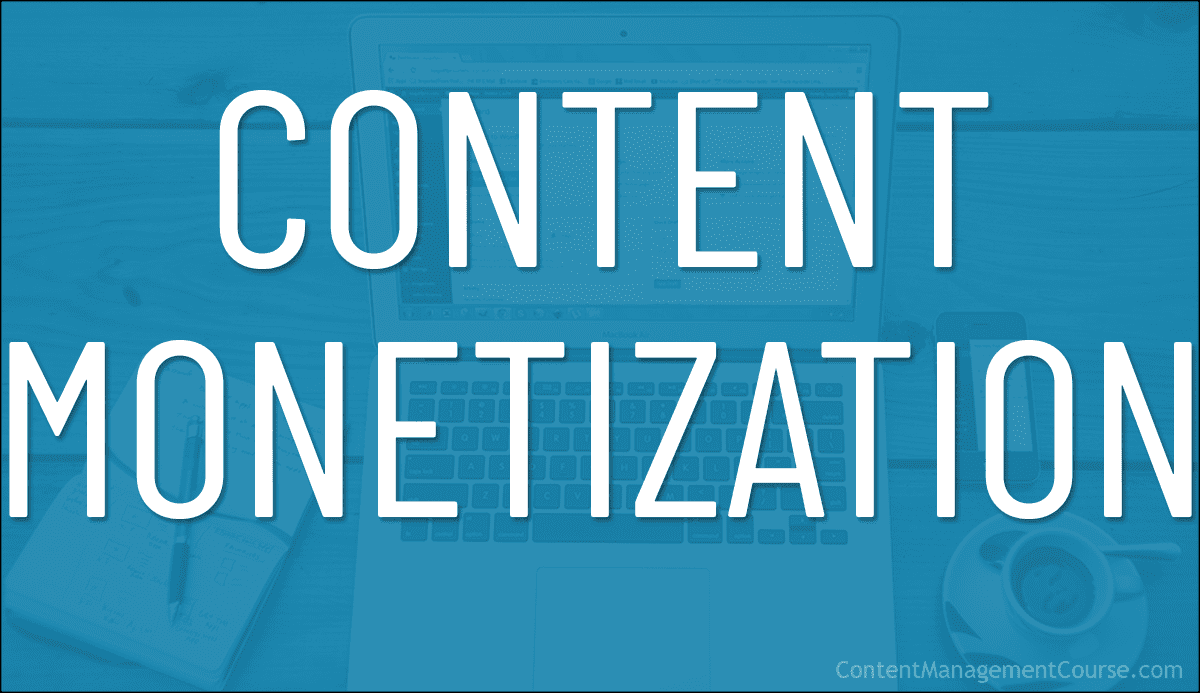Podcast Content Monetization Tips
 This is part 4 of our article series on content monetization strategies.
This is part 4 of our article series on content monetization strategies.
In this series of lessons, we look at different methods you can implement to monetize your digital content.
Securing Sponsorships for Podcast Episodes
One of the most lucrative ways to monetize your podcast content is by securing sponsorships.
By partnering with companies or brands that align with your podcast’s niche and audience, you can not only generate revenue but also provide valuable content for your listeners.
Here are some strategies to secure sponsorships for your podcast episodes.
1. Know Your Audience: Before approaching potential sponsors, it’s essential to have a clear understanding of your podcast’s audience demographics, interests, and preferences. This information will help you pitch relevant sponsorship opportunities that will resonate with your listeners.
2. Create a Media Kit: A media kit is a valuable tool for showcasing your podcast’s reach, engagement metrics, and audience demographics to potential sponsors. Include information about your podcast’s download numbers, listener demographics, and previous sponsorship success stories to demonstrate the value of partnering with your podcast.
3. Reach Out to Potential Sponsors: Once you have a clear understanding of your audience and have created a compelling media kit, it’s time to reach out to potential sponsors. Start by identifying companies or brands that align with your podcast’s niche and audience, and then craft personalized sponsorship pitches that highlight the benefits of partnering with your podcast.
4. Offer Value to Sponsors: When pitching sponsorship opportunities to potential sponsors, emphasize the value that your podcast can provide to their brand. Offer to create custom ad spots, sponsored content, or other promotional opportunities that will help them reach their target audience and achieve their marketing goals.
5. Build Long-Term Relationships: Securing sponsorships for your podcast episodes is just the beginning. To maximize the value of these partnerships, focus on building long-term relationships with your sponsors. Provide regular updates on sponsorship performance, offer opportunities for sponsor feedback, and look for ways to collaborate on future projects.
By following these strategies, you can effectively secure sponsorships for your podcast episodes and generate revenue while providing valuable content for your listeners.
Remember to prioritize building relationships with sponsors and offering them value to ensure long-term success in monetizing your podcast content.
Creating Premium Podcast Content for Subscribers
Podcasts have exploded in popularity in recent years, offering a unique and engaging way to connect with audiences and deliver valuable information.
To create premium podcast content that subscribers are willing to pay for, you must first understand your target audience and what they are looking for.
This involves conducting thorough research to identify the topics, formats, and styles that resonate with your listeners. By tailoring content to meet the needs and interests of your subscribers, you can build a loyal and engaged audience for your podcasts.
One key aspect of creating premium podcast content is ensuring high production quality. This includes investing in professional equipment, editing software, and sound engineering to deliver a polished and professional product. You should also consider collaborating with industry experts or influencers to add credibility and value to your podcasts.
Another important consideration is consistency. Establish a regular publishing schedule and stick to it to keep subscribers engaged and coming back for more. By creating a sense of anticipation and reliability, you can build a dedicated following for your podcast content.
Finally, you can monetize your podcast content through various strategies such as offering exclusive bonus episodes, merchandise, or access to live events. You can also leverage sponsorships, partnerships, and advertising to generate revenue from your podcast.
By creating premium podcast content for subscribers, you can repurpose your content, diversify your revenue streams, and build a sustainable business model that resonates with your audience.
Monetizing Podcast Content: Ideas
Here are some podcast content monetization ideas for you to explore:
- Sponsorships and Ads: Sell sponsorships or ads within your podcast episodes. Brands pay for exposure to your audience.
- Affiliate Marketing: Incorporate affiliate marketing into your podcast. Recommend products or services, and earn a commission for every sale generated through your affiliate links.
- Premium Paid Content: Offer premium or exclusive content to your audience for a fee. This can include bonus episodes, early access, or special content reserved for paying subscribers.
- Podcast Subscriptions: Introduce subscription models for your podcast, where listeners pay a regular fee to access premium content or ad-free episodes.
- Merchandise Sales: Sell merchandise related to your podcast, such as branded merchandise or products related to your content. This can be an additional revenue stream and a way to engage your audience.
- Automated Ads: Implement automated ads within your podcast. These ads are dynamically inserted based on listener demographics, providing targeted advertising opportunities.
- Listener Donations: Encourage your audience to make voluntary donations to support your podcast. Some listeners may contribute out of appreciation for your content.
- Premium Content Membership: Create a membership program where subscribers gain access to premium content, community forums, or other exclusive benefits in exchange for a recurring fee.
Resources
For more information, tutorials, and resources to help you monetize podcast content, go here:
Also, see these articles..
- Tried-and-True Ways To Monetize a Podcast
- Strategies To Monetize A Podcast
- Ways to Monetize a Podcast
- How Podcasts Make Money
- How to Make Money From a Podcast
This is the end of part 4. To continue reading this article series, click on the pagination section below.
